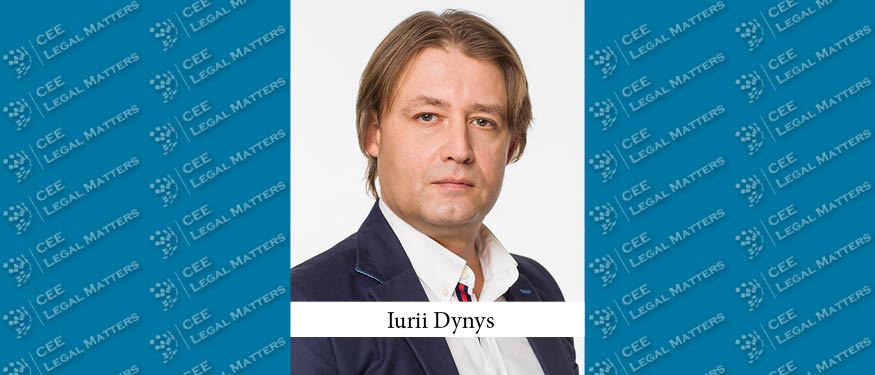The Court of Justice’s strike on protectionism in favor of ‘strategic companies’ in the Member States.
Introduction
Secure and continuous access to raw materials is pivotal for any industry, especially for strategic sectors, which was highlighted by the COVID-19 crisis. The construction sector is certainly a sector of strategic importance, in which Member States have a legitimate demand to guarantee the security of supply. From a national perspective it is understandable that the more ‘locally’ established the whole supply chain is, the more likely it is to function reliably in case of a crisis. Green considerations also seem to support this view, as rethinking global supply chains could lead to less transportation and shipping, which means lower emission and pollution rates. It is also clear that the majority of governments would like to see a flourishing national construction industry, dominated by national champions and SMEs.
However justified they may seem, protectionist measures carried out even in the post-COVID world by Member States must still comply with the core principles of EU law, most importantly, the fundamental freedoms of the internal market. Delivered on 13 July 2023, judgment C-106/22 (‘Judgment’) of the Court of Justice of the European Union (‘CJEU’) reaffirmed this expectation by confirming that national measures that hinder acquisition of strategic sectors by foreign-owned companies infringe the free movement of capital.
Background
One of the key players of the case at hand was Xella Kft. (‘Xella’), a Hungarian company manufacturing concrete construction products. Xella is 100% owned by a German company, which is in turn 100% owned by a Luxembourg company, Xella International SA. The ultimate parent company of the Xella group is, however, registered in Bermuda, and belongs to an Irish national.
The other actor of the case was Janes és Társa Kft. (‘Janes’), a Hungarian company owned by another Hungarian company, operating a gravel, sand and clay mine. Janes’ key client had already been Xella, purchasing the majority of the raw materials quarried by Janes for its concrete production. In 2022, Xella decided to acquire 100% of the shares in Janes, leading to a case that resulted in a ruling of the CJEU.
Janes’ activity of quarrying gravel, sand and clay entailed the designation of a ‘strategic company’, within the meaning of Section 276(3) of the Vmtv, a Hungarian legislation enacted during the COVID-19 pandemic aiming at inter alia the protection of public interest in the safety and operability of supply chains in strategic sectors. Upon acquiring these strategic companies, Vmtv. required filing a notification to the Minister for Technology and Innovation (‘Minister’) seeking approval of the proposed transaction. In the case at hand, however, upon Xella’s notification, the Minister, prohibited the implementation of the transaction , on the ground that the acquisition of the Hungarian company would endanger the ‘national interest’ referred to in the Vmtv.
The parties challenged the decision of the Minister on the ground that it did not contain exhaustive justification for the prohibition prescribed by the Vmtv. As the competent court, the Metropolitan Tribunal annulled the decision and instructed the Minister to conduct a new procedure. Nevertheless, by his second decision (‘Decision’), the Minister once again prohibited the implementation of the transaction, on the ground that the transaction would mean – inter alia – a risk of prejudice to or endangerment of the interests of the State, public security, public order in Hungary, in particular with regard to the security of supply of basic social needs, as per the Vmtv.
The Decision stated that if Janes would be indirectly acquired by a company registered in Bermuda (a ‘foreign investor’ under the Vmtv.), this could pose a risk to the security of supply of raw materials in the construction sector. In addition, the Decision added that ‘the acquisition by a foreign owner of a strategic company would reduce the proportion of domestic-owned companies, which could harm the ‘national interest’, in the broad sense’ , given that the construction sector in Hungary is already dominated by foreign actors.
The Decision was challenged by Xella, who argued that it constituted ‘arbitrary discrimination or a disguised restriction on the free movement of capital in the light, inter alia, of Articles 54 and 55 TFEU, which afford, in parallel, the benefit of freedom of establishment to companies established in the European Union’. Xella also stated that its final owner is a Union citizen and argued that the blurry concept of ‘national interest’ in the Vmtv. might go contrary the principles of rule of law.
The Metropolitan Tribunal stayed the proceedings and asked the CJEU, in essence, whether Article 65(1)(b) TFEU should interpreted as meaning – having also regard to recitals 4 and 6 of Regulation 2019/452 and to Article 4(2) TEU – that it permits laying down rules such as those of the Vmtv.
The CJEU’s findings
The CJEU stated at the outset that, although the transaction was not governed by Regulation 2019/452 (which provides for framework for the screening of foreign direct investments (‘FDIs’) into the Union), the ownership structure of the foreign investor may of course be taken into account when assessing the potential risk to security or public order posed by the respective investment. The CJEU added that although Xella is part of a group of companies whose ultimate parent company is established in a third country, it ‘has the right to rely on the freedom of establishment guaranteed by the TFEU since it is connected to the legal system of a Member State and is therefore an EU company’. Thus, the CJEU decided the case on the TFEU provisions on freedom of establishment.
Naturally, such rules cannot be relied on in a situation which is confined within a single Member State. In this respect, however, the cross-border ownership structure of Xella could be considered to constitute the necessary ‘foreign element’ which entailed the applicability of the TFEU.
As regards the Vmtv.’s respective provisions as applied by the Decision at issue, the CJEU firstly stated that, in so far as they allow the authorities of a Member State to ‘prohibit an EU company, on grounds of security and public policy, from acquiring a shareholding in a ‘strategic’ resident company […] clearly constitutes a restriction on the freedom of establishment of that EU company, in this case a particularly serious restriction’.
As the national law was found to be in breach of the freedom of establishment, the CJEU went on to assess whether their provisions could amount to the well-settled case law of overriding reasons relating to the public interest. In order to be acceptable, the respective national measure must (i) be appropriate to ensure that the objective it pursues and (ii) must not go beyond what is necessary to achieve it.
The CJEU inferred that the Vmtv. was intended to protect the ‘specific national interest in ensuring the security and the continuity of supply to the construction sector, in particular at the local level’. Although TFEU 51(1) allows for a restriction of the freedom of establishment on the grounds of public policy, public security or public health, the CJEU highlighted that purely economic considerations, such as the promotion of the proper functioning of the national economy cannot justify the restriction of a fundamental freedom. Similarly, public policy and security grounds cannot be relied on by Member States to serve purely economic considerations.
In connection with the security of supply, the CJEU held that such a motive may only be relied on in case of a ‘genuine and sufficiently serious threat’ to a fundamental interest of society. However, unlike the sectors of telecommunication, petrol or energy, the CJEU did not find the excavation of gravel, sand and clay a ‘fundamental interest of society’ that would justify the above restriction. Furthermore, the CJEU could not verify that the proposed acquisition would give rise to a ‘genuine and sufficiently serious threat’, especially since the major purchaser of Janes’s raw material had already been Xella.
Consequently, the CJEU held that the provisions of the TFEU on freedom of establishment preclude a national foreign investment screening mechanism that prohibits the acquisition of a resident company (even if regarded as strategic) by another resident company of a foreign background on the ground that the transaction risks harming the national interest in ensuring the security of supply to the construction sector. The respective provisions of the Vmtv., thus, were held to be contrary to Union law.
The broader context
In addition to the above Judgment, Hungarian measures in the construction sector have already been placed under strict scrutiny by the European Commission (‘Commission’). In its 2023 Country Report on Hungary, the Commission raised concerns over the adverse business environment of foreign-owned companies, especially those producing cement and ceramic materials.
In addition, soon after the Judgment, the Commission announced to bring Hungary before the CJEU in the framework of an infringement procedure launched over national rules fixing prices for specific construction materials, and providing for a 90% penalty on the difference between fixed prices and sale prices exceeding the fixed prices. The Commission is also concerned that the national rules require economic operators to maintain fixed output levels, regardless of whether they are economically justified. In the Commission’s view, these national measures may infringe Article 49 TFEU on the freedom of establishment and go against the EU Single Market Transparency Directive.
The Hungarian Competition Authority also conducted various expedited sector inquiries into the product markets of ceramic and wooden construction materials, and also the insulation market. In these, the Authority formulated recommendations for various legislative interventions in favor of the consumers, mostly to tackle rising prices by creating long-term strategies and strengthening domestic production.
Although on a different legal basis, back in 2021 Hungary also prohibited the acquisition of AEGON's Hungarian subsidiaries by the Austrian VIG, arguing that the transaction would threaten Hungary's legitimate interests. The Commission investigated the case and found that the prohibition of the transaction infringed the freedom of establishment, hence was contrary to Article 21 of the EUMR.
In conclusion, although cropping supply chains especially in the construction sector would possibly serve national and green considerations at the same time, EU Member States must be aware to implement these ambitions without infringing the fundamental freedoms of EU law.
By Tamas Simon, Junior Associate, Baker McKenzie
















